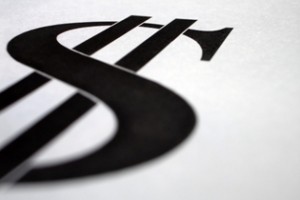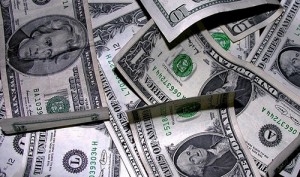Posted on 03 May 2011. Tags: consumer acceptance, credit card industry, developing countries, dodd, economy, financial crisis, hot topic, long time, regulatory changes, reuters
 For the first time in a very long time- or at least since the recession started- credit card executives are seeing bright sunny days and are looking far beyond the losses brought by the financial crisis. This is a really good thing considering the fact that the government is planning to tighten their grip on credit card companies.
For the first time in a very long time- or at least since the recession started- credit card executives are seeing bright sunny days and are looking far beyond the losses brought by the financial crisis. This is a really good thing considering the fact that the government is planning to tighten their grip on credit card companies.
Over the past few months, credit card company losses are falling. The overwhelming consumer acceptance of the smartphone payment systems and all other technologies has given credit card companies the opportunity to garner long-term revenue growth.
Now, executives strongly believe that they can easily do something to work around the effects of the recent regulatory changes of the card industry.
Credit card executive Stephen Eulie said that he is still very optimistic. There are no negative effects of our current economy that they cannot do something about, he said. Eulie spoke to Reuters in the credit card industry conference conducted every year.
In the recent years, most of the topics discussed in the conference are about the new regulations in place. Talks about the credit card law passed in 2009 and its lingering effects dominated the previous conferences. The Dodd-Frank financial reform law was also constantly a hot topic in the previous years.
However, banks are more positive and credit card companies are tapping new technologies this year to invest in developing countries wherein people use credit card as a luxury and not a necessity.
One of the conference attendee said that that the credit card industry has stopped finding ways to cease the regulations, and started looking for ways on how to get around it.
Posted in Finance
Posted on 07 January 2011. Tags: assets, chase co, currencies, current account deficit, economy, fiscal deficit, london, low interest rates, normand, trades
 The dollar will decline this year as the Federal Reserve keeps the interest rates near to zero and the fiscal deficit stays close to record despite the extension of Bush-era tax cuts, the JPMorgan Chase & Co said.
The dollar will decline this year as the Federal Reserve keeps the interest rates near to zero and the fiscal deficit stays close to record despite the extension of Bush-era tax cuts, the JPMorgan Chase & Co said.
John Normand, the head of currency strategy at JPMorgan London, said that dollar will drop about 12 percent to $1.48 per euro and 7 percent to 78 yen by the end of year 2011. The bank predicts that Canadian dollar will be the best performer among the major currencies this year if oil averages above $100 per barrel.
In addition, Normand said that U.S currency will be utilized to fund the so-called carry trades, which will then be used to buy higher-yielding currencies.
The growth of U.S economy is not enough to support the dollar since it is highly improbable that the Fed will increase interest rates over the next 12 months. Normand said in an interview that few people will purchase the dollar as an investment, but they will use it as a funding currency.
The currency increased 7 percent versus the euro last year. However, it dropped 13 percent against the yen, which is thought as the biggest turn down against a major currency, when record-low interest rates in the U.S reduced the appeal of American assets.
Normand said the Federal Reserve is not likely to increase the interest rates this year for the reason that inflation pressures still remain submissive. The currency might also suffer from increasing current account deficit.
However, the JPMorgan forecast tells that the U.S economy might increase, from 2.9 percent growth in 2010 to 3.3 percent this year. Consumer prices will also rise 1.2 percent from the average 2.5 percent in the past ten years.
Posted in Business, Featured News
Posted on 30 September 2010. Tags: consumption, dollar weakness, economy, emerging economies, global currency, guido mantega, long term unemployment, low interest rates, monetary policy, second wave
 Joseph Stiglitz, a Nobel Prize winning economist, said that large emerging economies can still live with weak dollar rate as his defense for the need of new round of U.S economic stimulus on Thursday.
Joseph Stiglitz, a Nobel Prize winning economist, said that large emerging economies can still live with weak dollar rate as his defense for the need of new round of U.S economic stimulus on Thursday.
According to Stiglitz, US monetary policy seems to be working its way through “competitive currency devaluation.” This is caused by the recent weakening of the dollar rate that makes the value of U.S exports cheaper.
Additional U.S monetary easing will most probably cause another dollar weakness. This might cause a threat to emerging countries’ exporters.
These large, emerging countries include Brazil, China and India. As mentioned by Stigilitz, these three countries are still competitive enough to withstand the present dollar rate. However, there annoyance and concern about it is really understandable.
Brazilian Finance Minister Guido Mantega said earlier this week that “global currency war” has already started and several concerns about the currency devaluation are spreading fast among emerging economies.
The reason why U.S monetary stimulus was not able to spur lending since companies are also not investing given the fact that there is less consumer demand.
He says that an excellent solution to solve this problem is to create a second wave of stimulus intended to encourage investment instead of more consumption. The U.S government is not wise not to borrow at the current low interest rates in order to enhance the economy.
Indeed, Stiglitz is not very optimistic with regards to the U.S economy’s future. He says, numbers are pretty depressing and the increased percentage of long-term unemployment remains the real problem.
Posted in Finance
 For the first time in a very long time- or at least since the recession started- credit card executives are seeing bright sunny days and are looking far beyond the losses brought by the financial crisis. This is a really good thing considering the fact that the government is planning to tighten their grip on credit card companies.
For the first time in a very long time- or at least since the recession started- credit card executives are seeing bright sunny days and are looking far beyond the losses brought by the financial crisis. This is a really good thing considering the fact that the government is planning to tighten their grip on credit card companies.
 The dollar will decline this year as the Federal Reserve keeps the interest rates near to zero and the fiscal deficit stays close to record despite the extension of Bush-era tax cuts, the JPMorgan Chase & Co said.
The dollar will decline this year as the Federal Reserve keeps the interest rates near to zero and the fiscal deficit stays close to record despite the extension of Bush-era tax cuts, the JPMorgan Chase & Co said.
